Tehran University Suspends Artist Tortured For Defying Hijab Rules
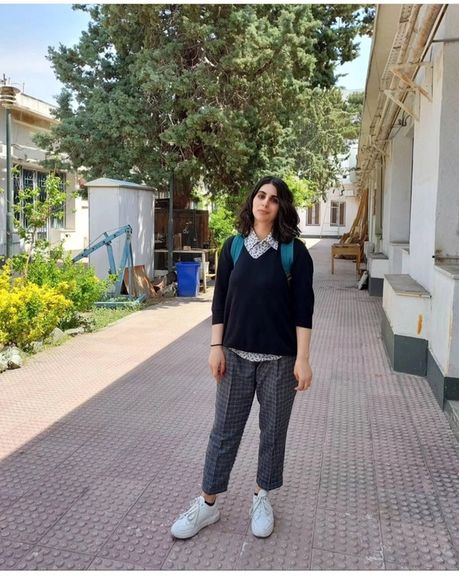
A woman who was arrested and tortured for protesting against hijab rules in Iran has been punished by her university with two semesters suspension.

A woman who was arrested and tortured for protesting against hijab rules in Iran has been punished by her university with two semesters suspension.
Sepideh Rashno, 28 has been suspended from Alzahra University in Tehran due to "non-observance of the Islamic hijab", she revealed on her Instagram account on Saturday.
She had been told to "go on leave for two semesters" but refused and so was suspended.
"As a citizen, I have the right to choose the clothes I wear,” she wrote in response to the decision, adding that she plans to return to the university after her suspension with “her preferred outfit.”
The artist and writer was arrested in July after a heated dispute with a hijab enforcer on a city bus. A video of the clash she posted on social media went viral.
She was tortured into a confession and condemning other activists, and also forced to express her regret both for the confrontation with the hijab enforcer and for posting the video.
Rashno was found guilty of “association and collusion with the intention of committing a crime against the country's security through communication with foreigners and propaganda activity against the Islamic Republic and encouraging people to commit corruption and prostitution" and “propaganda against the Islamic Republic” and given a five-year suspended jail sentence in December.
Her courageous stance follows the death of Mahsa Amini, 22 in September last year while in custody for breaching hijab rules. Her killing sparked nationwide protests which are still ongoing.
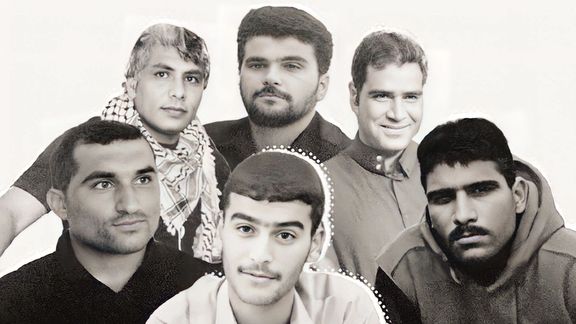
Amnesty International has urged Iran to drop the imminent execution of six ethnic Arab men and three other prisoners whose gave “tortured-tainted” confessions.
The international rights body said the prisoners arrested in the oil-rich Khuzestan province had been denied their right to a fair trial and their detention is “arbitrary”.
The execution of Adnan Ghobeishavi, 25, Moein Khanfari, 28, Mohammad Reza Moghaddam, 29, Salem Mousavi, 39, Habib Deris, 42, and Ali Majdam, 43 could take place at any time after a Supreme Court ruling on March 6 upheld the sentences against them.
In a separate tweet Amnesty International also voiced concern over the fate of three other detainees in Esfahan.
“Majid Kazemi, Saleh Mirhashemi and Saeed Yaghoubi are at imminent risk of execution at central Esfahan prison (also known as Dastgerd prison) after Iran’s Supreme Court upheld their unjust convictions and death sentences in early May 2023.”
After nationwide anti-government protests last year, which is still not fully contained, the Iranian regime has embarked on a wave of executions that has seen dozens hanged this year. Activists are concerned that the executions aim to intimidate the population from further protests.

The regime used overwhelming force and military weapons to kill more than 500 civilians during the protests. Hundreds of others received permanent bodily injuries, including loss of eyes because of shotgun pellets fired at the faces of protesters. More than 20,000 were arrested.
The London-based human rights watchdog said on May 12 that the six should have access to their families, lawyers and adequate medical care pending their release.
“Their group trial was grossly unfair. The men were denied lawyers of their own choosing and were never allowed access to their court-appointed lawyer, even at trial. The authorities have barred them and their lawyer from accessing their casefile and verdict,” Amnesty said.
According to the report, the men's "torture-tainted" confessions were used by the Revolutionary Court in Ahvaz to sentence them to death on February 14 on the charge of "waging war against God" following the armed operations conducted by a separatist group in which members of the security forces were killed.
Amnesty said that the men, who have denied the charges, were neither allowed lawyers of their own choosing nor access to their court-appointed lawyers during trial, and that the authorities prevented them from seeing their case files and verdicts.
IRGC agents subjected one of the detainees to "sleep deprivation, waterboarding, electric shocks, beatings, and hanging upside down while submerging his head in water," according to the group.
Amnesty expressed concern that three other Iranian men are at imminent risk of execution in Isfahan after the Supreme Court affirmed their "unjust" convictions earlier this month.
Since late April, at least 60 people have been executed across the country for charges that under international law should not result in the death penalty, according to the New York-based Human Rights Watch (HRW).
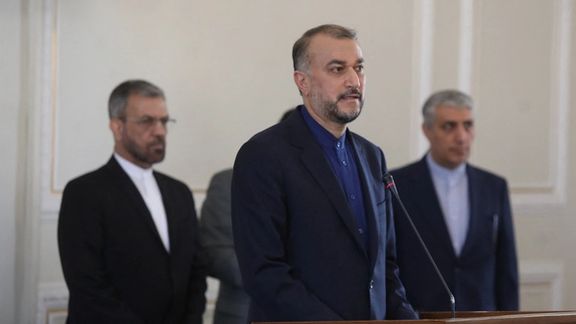
Tehran’s foreign minister has welcomed the warming relations between Iran and Saudi Arabia following their unexpected deal in March to resume relations.
Foreign minister Hossein Amir-Abdollahian expressed satisfaction over the introduction of ambassadors in a phone call on Friday reported by Iranian local media.
The joint agreement between predominantly Shia Iran and Sunni Saudi Arabia brokered by Beijing sent shock waves through the region when it was revealed earlier this year after long-standing rivalry between the two states.
"The Islamic Republic has taken the necessary measures for the official opening of its embassy in Saudi Arabia," said Amir-Abdollahian.
Iran's foreign minister added that "the plans to visit the respective capitals by the foreign ministers is a sign of determination of the parties to cooperate and renew relations."
Iranian media reported that the Saudi Foreign Minister bin Farhan expressed satisfaction over the developments in line with the Beijing agreement.
In the agreement to restore relations between Tehran and Riyadh, which was inked in March with the mediation of China in Beijing after eight years of tensions between the two archrivals, it was stated that the embassies and consulates will be reopened within two months.
Upon the visit of Iran's Minister of Economy to Saudi Arabia, Riyadh on Friday introduced its new ambassador to Tehran.
Iran's Economy Minister Ehsan Khandouzi led an economic delegation to Jeddah on Thursday to hold bilateral meetings with Saudi officials and talks with the Islamic Development Bank during his stay.
He met with his Saudi counterpart, Mohammed Al-Jadaan on the sidelines of the meeting of the Islamic Development Bank.

The Group of Seven (G7) Finance Ministers and Central Banks' Governors warned about the risks posed by Iran in illicit financial activities.
The officials held a meeting in the Japanese city of Niigata on Saturday and issued a statement on pressing global economic and security issues.
"We are deeply concerned with illicit financing risk emanating from Iran," the Group stressed in their joint statement and pledged full support for the international watchdog, the Financial Action Task Force, FATF for monitoring global compliance.
FATF is a Paris-based inter-state organization following the observance of international financial rules against money laundering and financing of terrorism.
Iran and North Korea are both on FATF ‘blacklist’ for not adhering to several international financial conventions. The designation virtually cuts off the violators from the international banking system.
Iran has failed to pass legislation to comply with FATF demands and is recognized as a high-risk country for financial transactions and investments.
The Iranian regime wants to have a free hand in financing militant groups around the world, which would violate FATF’s anti-terror financing rules.
The Iranian banking system controlled by the government is opaque and mired in debt and corruption.
Even if the United States lifts its economic sanctions, Iran would still be considered a high-risk country if it does not comply with international financial rules.
The G7 officials meeting in Japan also strongly warned about North Korea and its “illicit activities” related to “Proliferation of weapons of mass destruction.”

Hossein Ta'eb, a senior adviser to the IRGC says former President "Hassan Rouhani will be tried if not today, maybe another day for his decision's during his presidency."
However, while according to Etemad Online Ta'eb insisted that Rouhani should be tried, he commented that his trial is not the establishment's immediate priority.
Several social media users commenting on the report said that Ta'eb himself should be tried for security breaches during his tenure as the head of IRGC's Intelligence Organization. He was removed from his post last year after a series of serious sabotage acts in Iran attributed to Israel and a major case of infiltration by Israel was revealed. A top security official, Alireza Akbari was subsequently hanged on charges of espionage for foreign countries.
This was not the first time Iran's hardliners call for Rouhani's trial or accuse him of pursuing accommodation with the West and for concluding a nuclear agreement in 2015.
Rouhani recently said that he would file a complaint against a hardliner member of the Supreme Council of Cultural Revolution who has accused him and his aides of espionage.
Attacks on Rouhani by hardliners escalated when he was quoted last week as having said that an agreement with the United States was at hand before he handed over the presidency to Ebrahim Raisi in 2021.
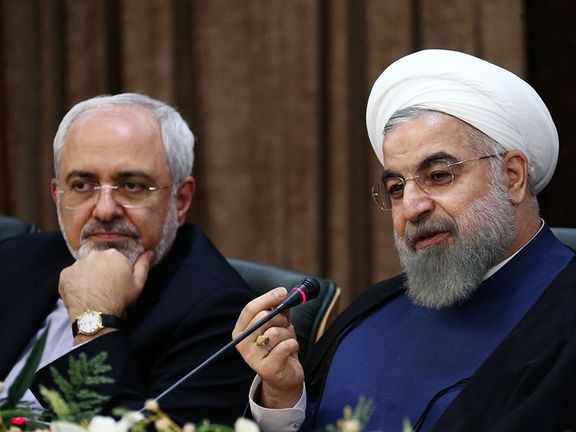
Rouhani who kept a low profile for 18 months after his presidency, began making public statements critical of the current economic and political situation in Iran and convening frequent meetings with his former aides. According to Entekhab website, which is close to Rouhani, on Friday, he said sarcastically that everyone expected Iran's problems to be solved now that a consolidated conservative government was in office.
Earlier attacks in April targeted Rouhani for suggesting a referendum on the country's key issues. Not only the hardliners in the government, but Supreme Leader Ali Khamenei lashed out at critics for the suggestion they said would undermine the regime's authority. Khamenei even went out of his way to say that the people are not knowledgeable enough to take part in referenda.
Rouhani has also criticized the current government for high inflation surpassing 50 percent and increasing poverty. He also criticized the government for barring reformist and moderate candidates from running in elections.
Some of Rouhani's allies like the former chief of the parliament's Foreign Policy and National Security Committee, Heshmatollah Falahatpisheh, say that he should have fought harder to revive the 2015 nuclear deal, the JCPOA. He said this week that détente and solving the nuclear dispute were among Rouhani's promises to the nation and he should have done more to that end.
"At least Rouhani and his aides should have explained to the nation about why the negotiations with the United States and Europe were not fruitful," Falahatpisheh added.
Meanwhile, foreign policy analyst Mehdi Motaharnia said in an interview with Rouydad24 website that what is transpiring between Rouhani and the hardliners is part of a crisis of decision-making in Iran. Motaharnia further opined that consolidating political power in Iran by handing over the whole establishment to conservatives was the regime's biggest strategic mistake.
The decision to engineer the elections and allow hardliners to form an absolute majority in parliament and win the presidency in 2020-2021, could have only come from Khamenei.
He said that the new government made "revolutionary rhetoric" the driving force of its foreign policy and brought the country face to face with a serious challenge it cannot resolve.
Referring to the tensions between Iran and the international community, Motaharnia stressed that the year 2023 is the year in which the Iranian government needs to take big and hard decisions to ensure the regime's stability.
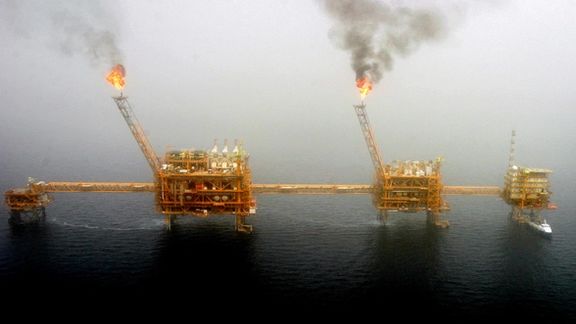
As global oil prices dropped in late April and early May, further indications emerged that embattled Iran provides large discounts to its main customer China.
Oil traders jumped into buying futures in early April after OPEC+ producers announced further oil output cuts of around 1.16 million barrels per day, in a surprise move that analysts said would cause an immediate rise in prices and the United States called inadvisable.
But as concerns about oil demand persisted throughout April, traders began to cut their losses and reversing their response to the production cuts with prices falling back in early May.
Iran’s deputy oil minister claimed on May 8 that the current government has increased production by 600,000 barrels per day in the past 20 months, but the reality is that except China Iran does not have any serious buyers willing to import large quantities in violation of US third-party sanctions.
While oil has been trading at around 75-82 dollars in the past several months, Iran International reported in December that Tehran provides huge discounts to China, charging as little as $37 per barrel.
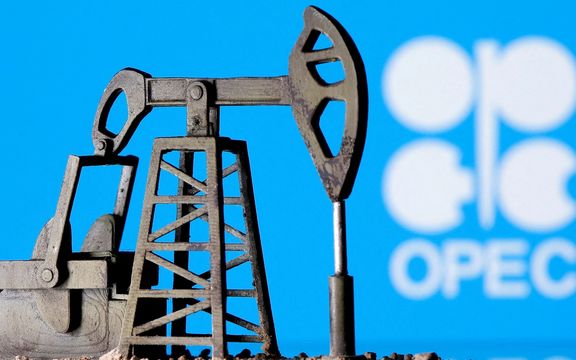
This explains the shortage of foreign currency in the government’s coffers that has halved the value of the rial since last September.
An analyst this week quoted an unnamed EU energy security source as saying that China, which already had secured a 30-percent discount from Iran before the Russian invasion of Ukraine, has demanded and received higher price cuts. Beijing already buys Russia oil at a large discount and Tehran has to sell its oil much cheaper now.
“But it is even worse for Iran, as – from 11 November 2022 - China has been paying Iran in non-convertible Yuan, that is Yuan that can only be used inside China and/or spent buying Chinese goods,” the EU source added. “Worse still is that whilst Yuan is the key instrument in payment, China is also using the currencies of Angola, Zambia and Kenya to pay Iran, and China is doing this as a means to induce Iran to buys goods from these countries so that these countries, in turn, can service their loans to China,” he argued.
If true, this is a serious setback for the Islamic Republic government which local analysts say has no serious plans to mitigate the economic crisis in Iran and reduce inflation which hovers around 50 percent.
President Ebrahim Raisi’s administration tries to impress public opinion with exaggerated statistics showing non-existent success, but critics and many people expect worse economic news in the coming months.
One latest claim of success was the visit of Iran’s oil minister to Iraq this week and the signing of agreements for joint projects. But there are no details and no financial projections announced about the cooperation promised.
Iran can hardly reap any financial benefits from similar joint projects given the enforcement of US banking sanctions that have already restricted Iranian schemes to launder money and secure hard currency in Iraq.
Iran also needs to invest more than $200 billion it does not have to rejuvenate its oil and natural gas production after decades of neglect and lack of Western technology.